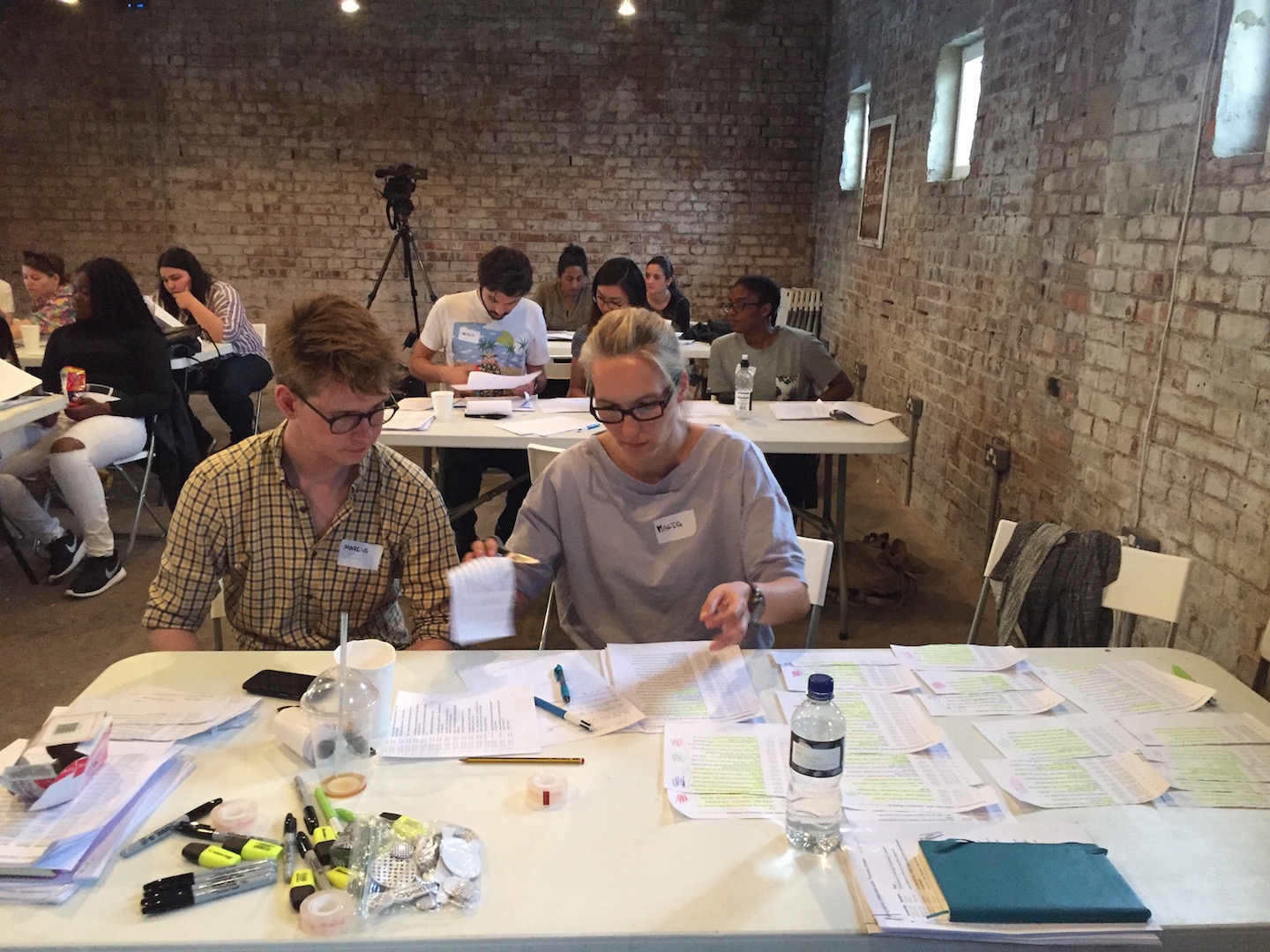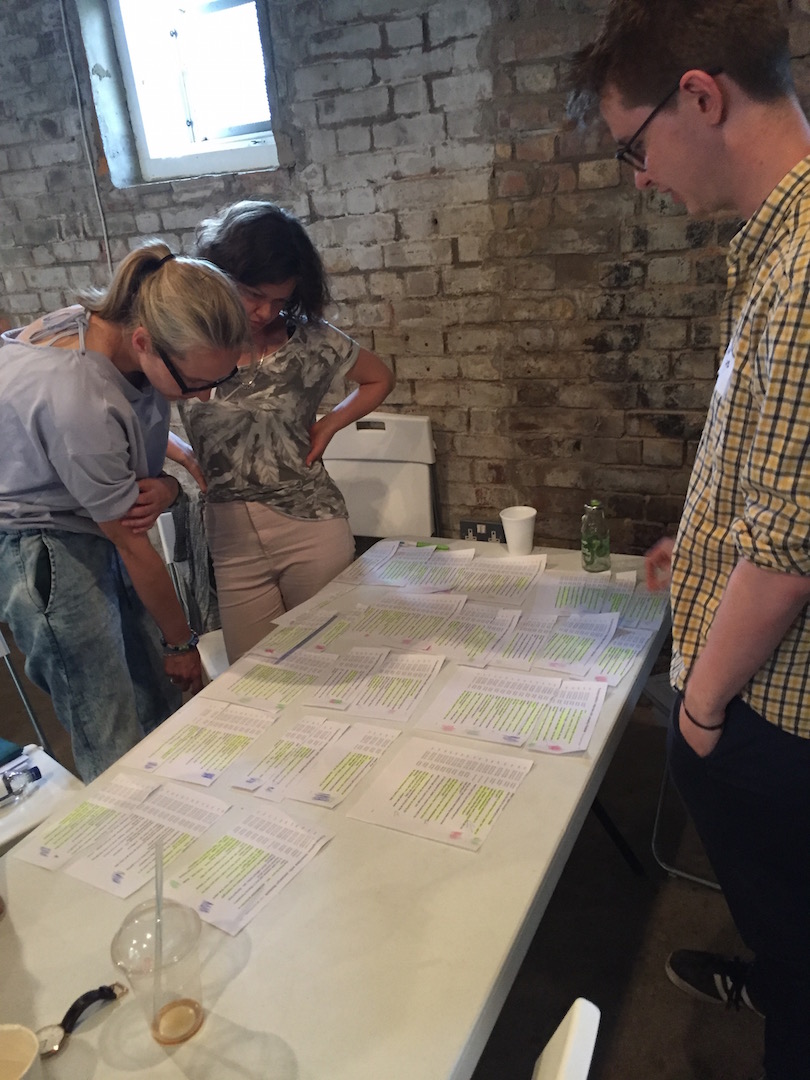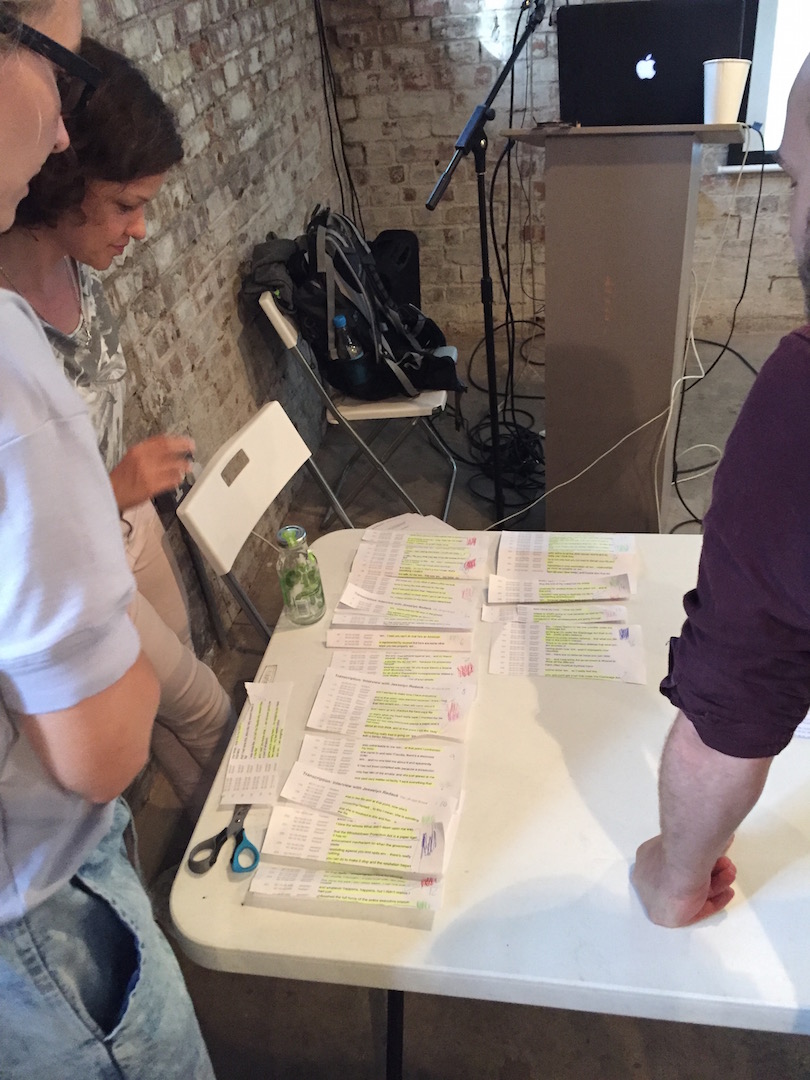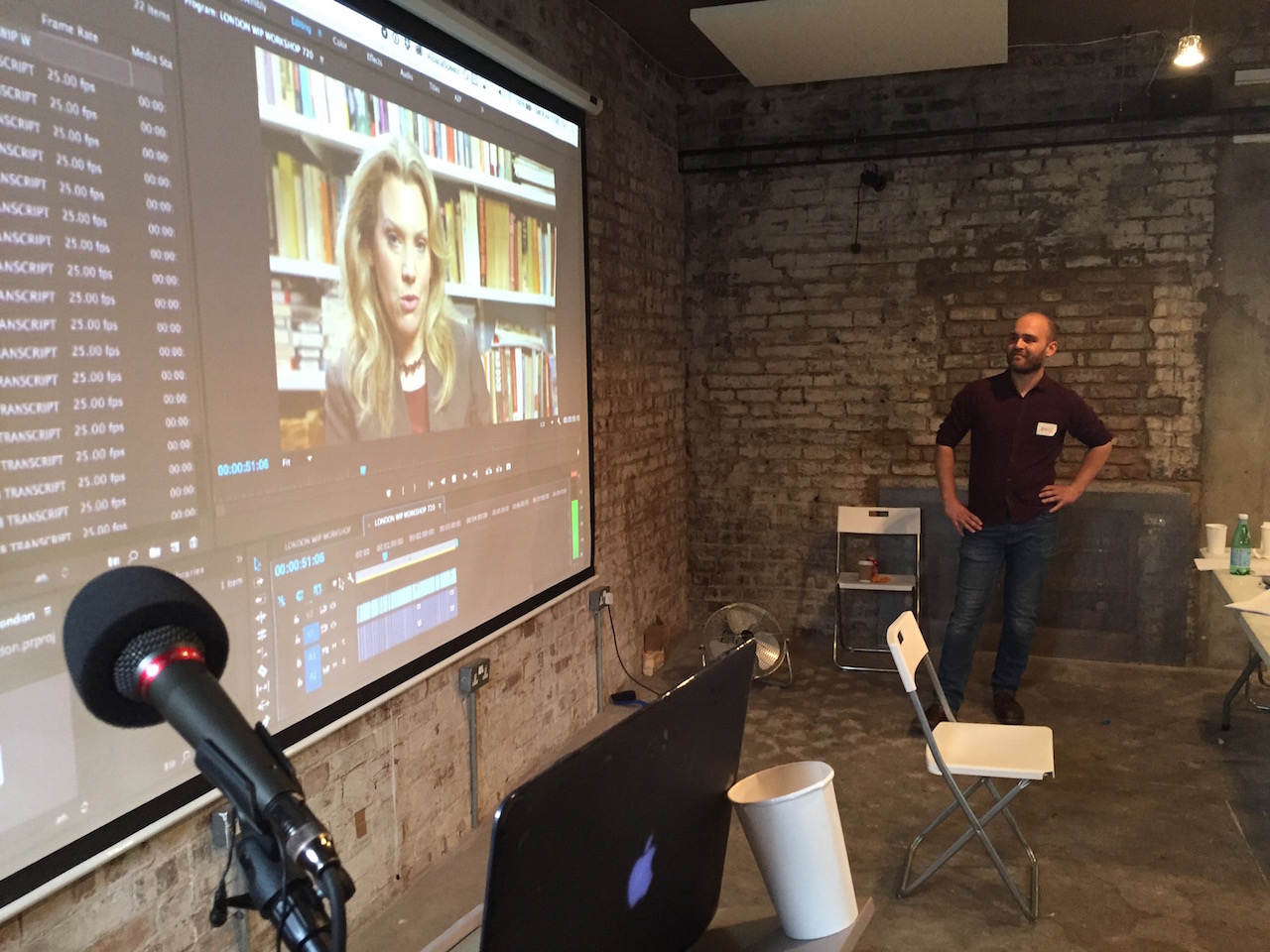How to tell compelling stories out of video interviews?
2017 Jul 07GitHub, Url↗
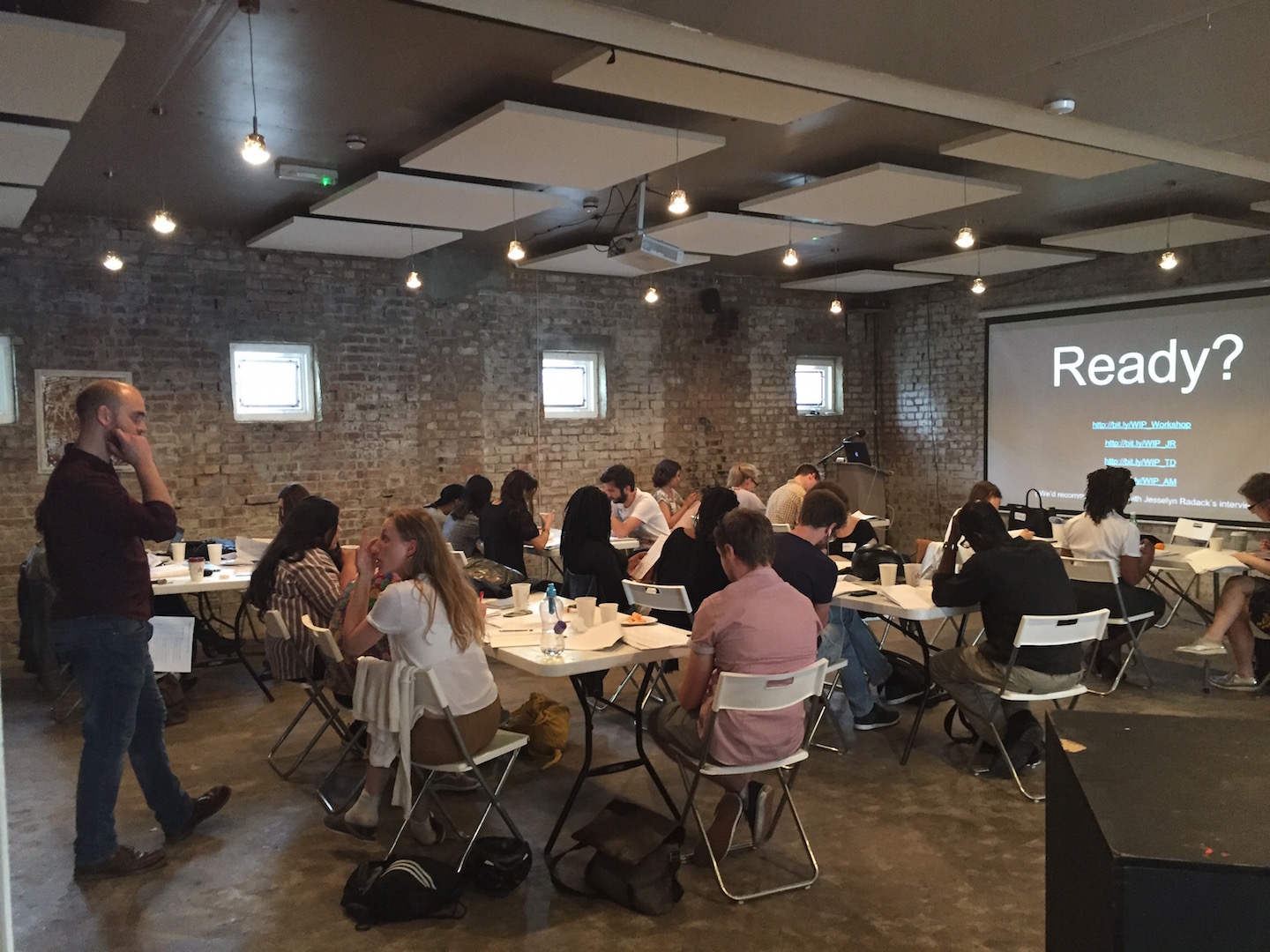
E-book based on a series of hands on Workshops in London, Buenos Aires, New York and Florence Introducing paper-editing to answer the question 'How to craft compelling stories out of audio or video interviews?' through key story crafting concepts, this is the underlying analogue workflow that inspired autoEdit.io
E-Book
Inspired by these series of workshops, I've wrote an e-book: "How to tell compelling stories out of video interviews?"
One of the participants at the workshop asked "If I edit my 'raw' interviews, does it make them less real?" So as a separate blog post I wrote a section on documentary representation that I think it's interesting/relevant in the accountability debate that has been raised with the new issues around fake news, the increasing need for transparency and increasing interests by the viewers to see the source material.
Workshop
In 2016 I've run version of this workshop in
- London, UK
- Buenos Aires, Argentina
- Hacks/Hackers Media Party, Buenos Aires, Argentina
- Florence, Italy
- New York, USA
Most recently I've re ran this workshop for the BBC with the team that was working with me on the BBC Digital Paper Edit tool to provide background context for the analogue workflow of editing audio/video interviews.
For the purpose of this blog post I'll focus on the first one I ran in London to give a run through of the experience.
Saturday July 9th 2016 I run a hands on workshop in titled "How to craft compelling stories out of video interviews?". This was in collaboration with Niels Ladefoged who has been curating the Whistle Blower Interview Project in collaboration with the centre for investigative journalism in London.
This was the description of the workshop on eventbrite.
Using some of the videos from the Whistle Blowers Interview Archive, we’ll take an hands on approach to explore key concepts, ideas and techniques to identify narrative points, test out story ideas, and craft a compelling story.
This workshop focusses on the underlying evergreen storytelling principles that transcend the medium, so no knowledge of video editing required, just curiosity towards story telling principles and techniques.
Participants will be divided into groups of 3 to 4 people. The aim for each group is to produce a 3 to 5 minutes video, given 3 short video interviews (roughly 15 min each) accompanied by their corresponding time-coded transcriptions.
Key story telling principles and techniques will be introduced to facilitate the process.
The aim of the workshop is for the participants to gain an hands on insight into the process of interviewed based documentary story crafting rather then producing a polished final product.
These were the slides used for the workshop.
The key idea was to guide the participant to an old school (paper, scissors and tape) paper-edit while introducing key story crafting concepts from relevant literature and personal experience.
We provided paper transcriptions for interviews, roughly an hour each, with
As well as a link to web version mobile responsive interactive transcription of the interview altho participants were strongly encouraged to work of the paper transcriptions.
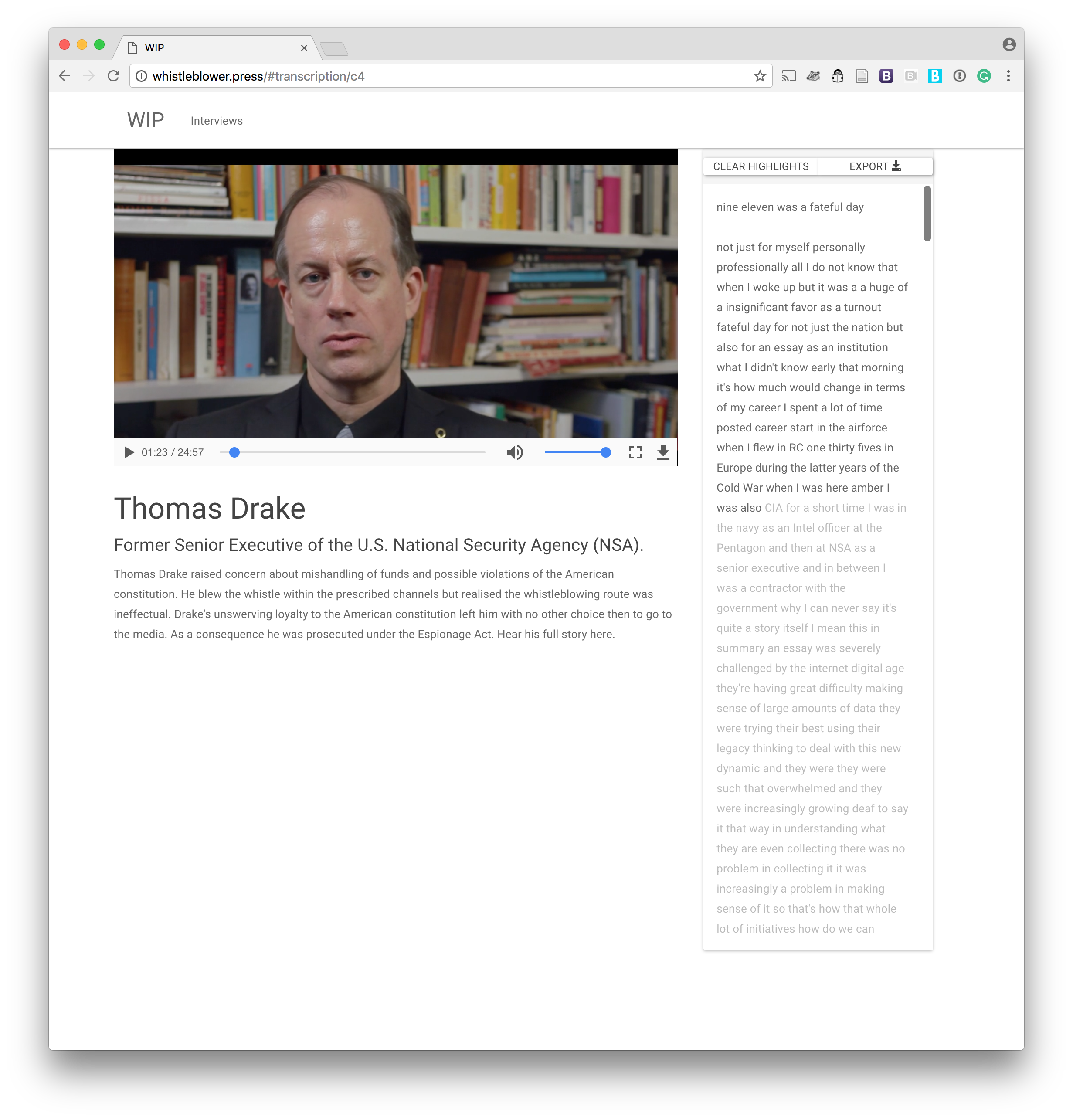
I was very impressed with how everyone was incredibly switched on, and the groups worked together bouncing ideas of each other in a very collaborative spirit.
At the end of the workshop we showed what one of the paper-edit from one of the groups would have looked like as a video sequence.
To assemble the sequence from their paper-edit within the time constraints I used a version of my first attempt at making a digital paper-editing software.

